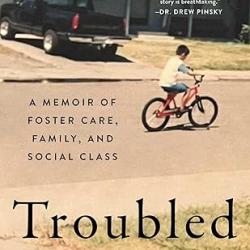People associated with The Gospel Coalition (TGC) tend to emphasize “guilt” far more than honor and shame. This is obvious to anyone who makes the effort to notice. More than a few writers even seem wary of stressing honor-shame for fear of minimizing the importance of guilt.

This disparity of attention is what motivated me to write Have Theologians No Sense of Shame?: How the Bible Reconciles Objective and Subjective Shame, which was published in Themelios (managed by TGC).
So, I was surprised and delighted to see D. A. Carson’s comments about shame in this month’s issue of Themelios. In his editorial, Carson writes,
“For several decades, missionaries and other culture commentators have pointed out that while much of the Western world fastens its attention on guilt, most of the Eastern world fastens its attention on shame. In such a context, if you present Christ as the one who deals with our guilt, the argument will not resonate as much as an argument that asserts Jesus deals with our shame.
Anyone who has spent time in, say, Southeast Asia, knows there is something to this analysis. One may go further and say that our increasing cross-cultural awareness in this global world affords Christians the opportunity to study the Bible afresh, and recognize the place that both guilt and shame play in its pages. Certainly both guilt and shame surface at the introduction of sin (Gen 3); indeed, they are so entangled that it is sometimes difficult to separate them, except in analytical terms.
Once again, however, just as there is “guilt” and “guilt”—the Bible focuses on guilt before God while we tend to focus on guilt feelings—so also is there “shame” and “shame.” As far as I can see, most shame cultures worry about loss of face before family and friends. People worry about doing something that brings shame on the family, lets down the side, makes it difficult to face neighbors. The fear of bringing shame on yourself or your family becomes a powerful motivation to conform to accepted norms. Of course, both guilt and shame operate in both the East and the West, but there is a preponderant emphasis on shame in the East.
Yet the emphasis on shame in the Bible is not first and foremost with reference to peers and to family, but to God. Adam loses face before God, and hides from him in the garden. In other words, our deepest shame is the loss of face we bear before God, not before our parents. Because God himself tells us we are to honor our parents, shaming our parents cannot be entirely separated from shaming God. Yet where a shame culture focuses almost entirely on horizontal relationships, it is still not ready to learn how the gospel addresses our shame. Instead of glorifying God, we have brought shame to his name. In a shame culture, it is necessary to demonstrate that, in the light of what the Bible says about God, our deepest shame humbles us before the living God, who alone can raise us up.”
Carson captures the nuance and balance I have urged for years. I hope his admonition will spur many others to reflect on the significance of shame in theology and ministry practice.

















